PICS, VIDEO: Homeless people on Cape Town's Buitengracht Street say they won't move
Kayleen Morgan
24 June 2024 | 16:41On 18 June the court ruled that approximately 200 occupiers living on seven pavements in tents and structures made from cloth and plastic around the CBD have until 30 July 2024 to vacate the area before the sheriff implements the eviction order.
CAPE TOWN - Several of the homeless people living along Buitengracht Street in Cape Town’s city centre say they won’t move into "Safe Space" accommodation provided by the City of Cape Town (CoCT) following an order by the Western Cape High Court granting their removal.
On 18 June the court ruled that approximately 200 occupiers living on seven pavements in tents and structures made from cloth and plastic around the CBD have until 30 July 2024 to vacate the area before the sheriff implements the eviction order.
The order was granted under the Prevention of Illegal Eviction and Unlawful Occupation of Land (PIE) Act.
In his judgment, acting judge Michael Bishop engaged the plight of those living on the streets.
"We can only care about the homeless when we see ourselves in them, we can only realise our own humanity if we commit to realising theirs, when we see that we are all a few bad decisions and some bad luck from life on the pavements."
"The City consists of and belongs to those who work in its corner offices and live in the mansions of Higgovale and Clifton, just as much as those who eke out a living on the city’s streets and sleep on its pavements and parks." he added.
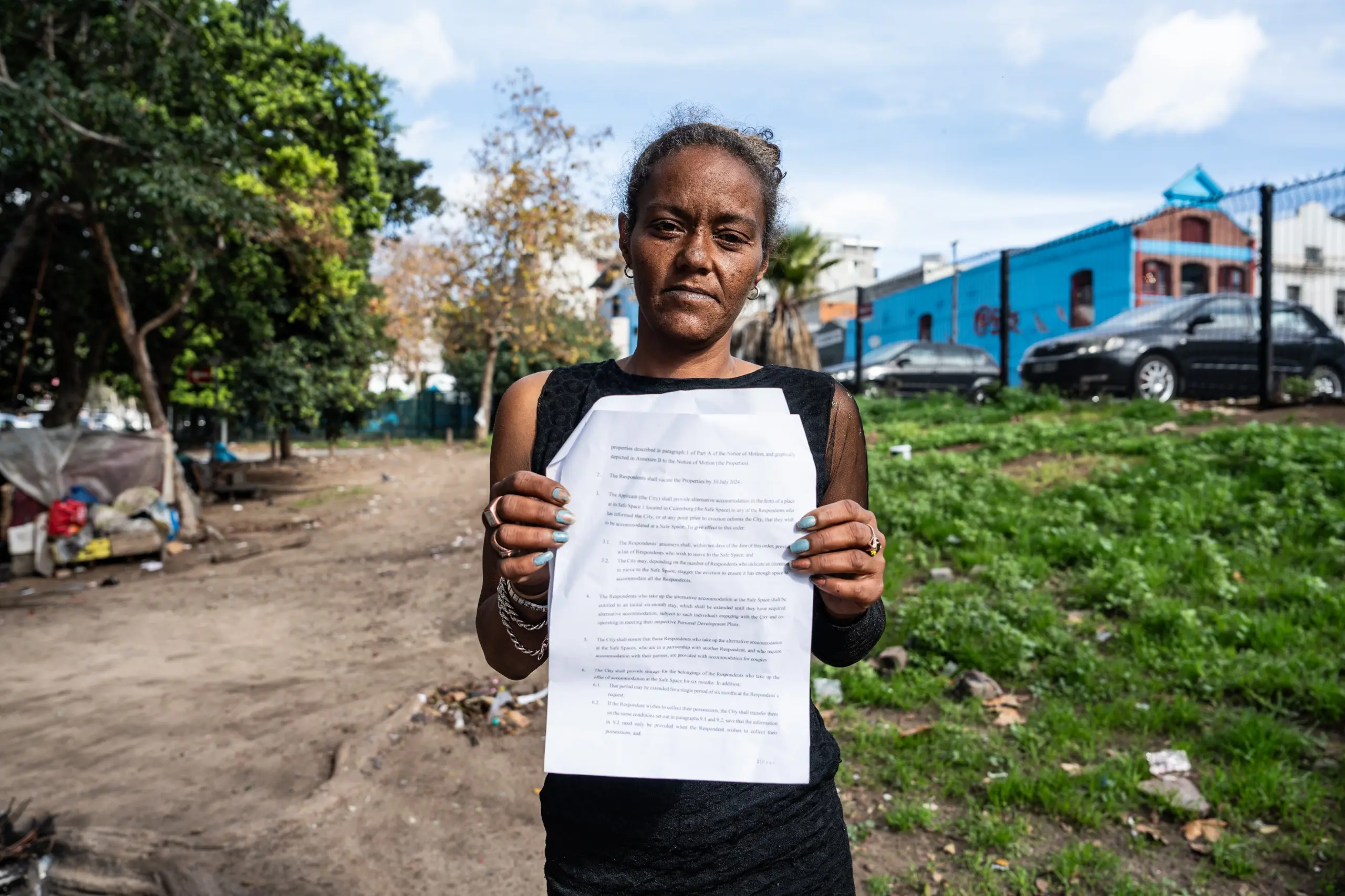
A group of Homeless people living on the Beitengracht Street pavement were served with an order from the Western Cape High Court pending their eviction. Picture: Kayleen Morgan/ Eyewitness News
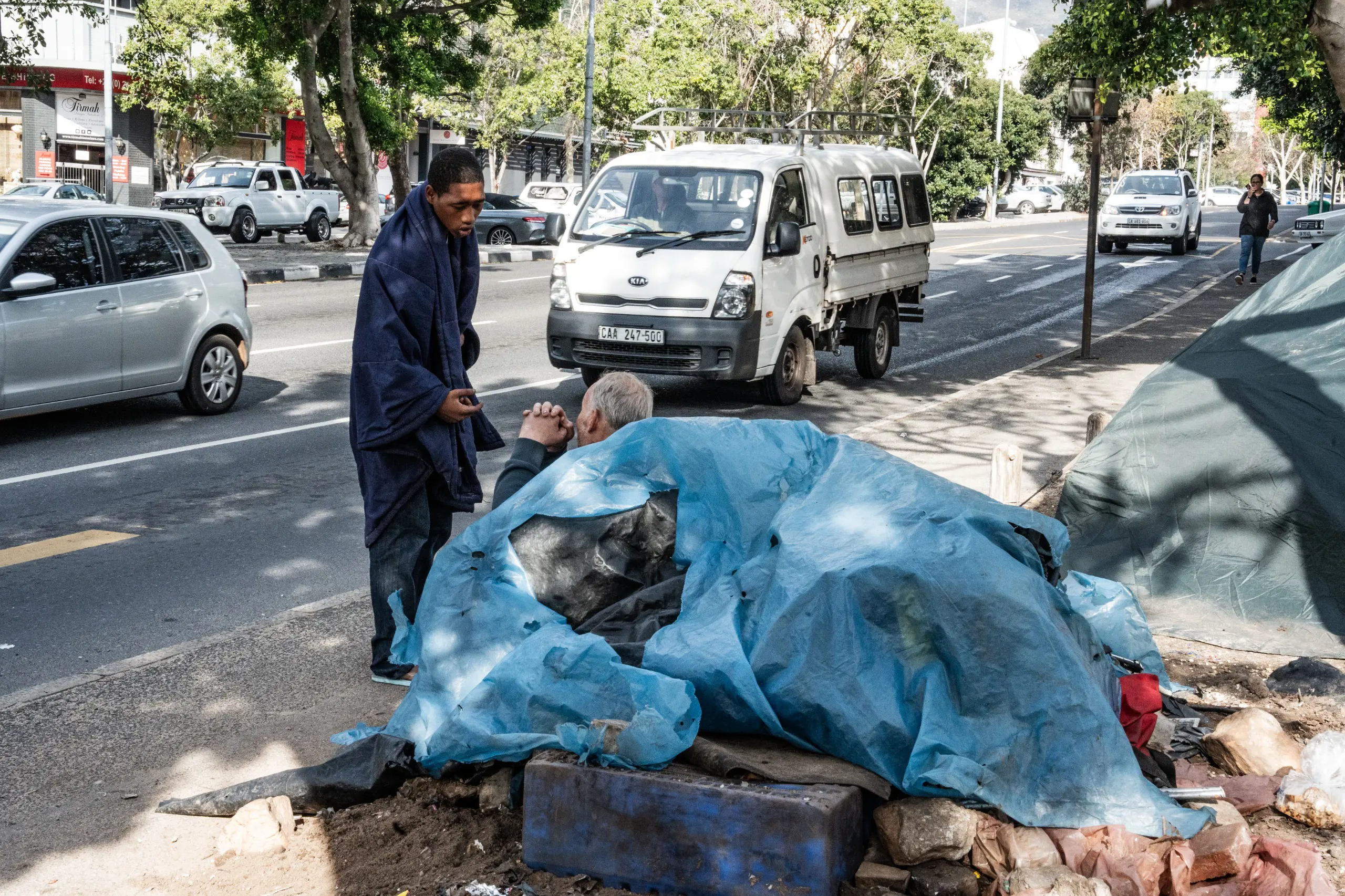
About 200 homeless people have until 30 July to vacate seven pavements around the City of Cape Town following an eviction order by the Western Cape High Court. Picture: Kayleen Morgan/ Eyewitness News
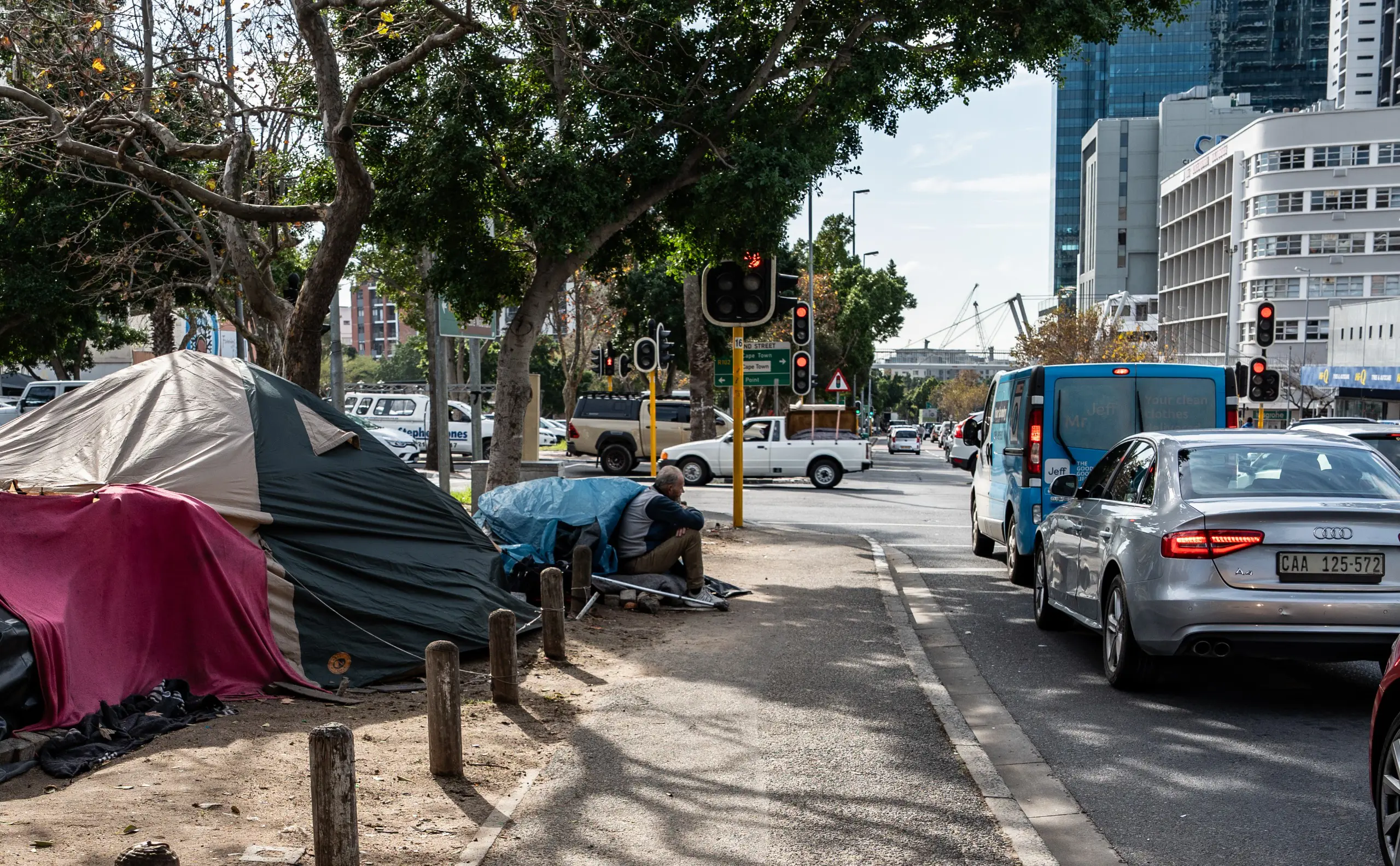
Picture: Kayleen Morgan/ Eyewitness News
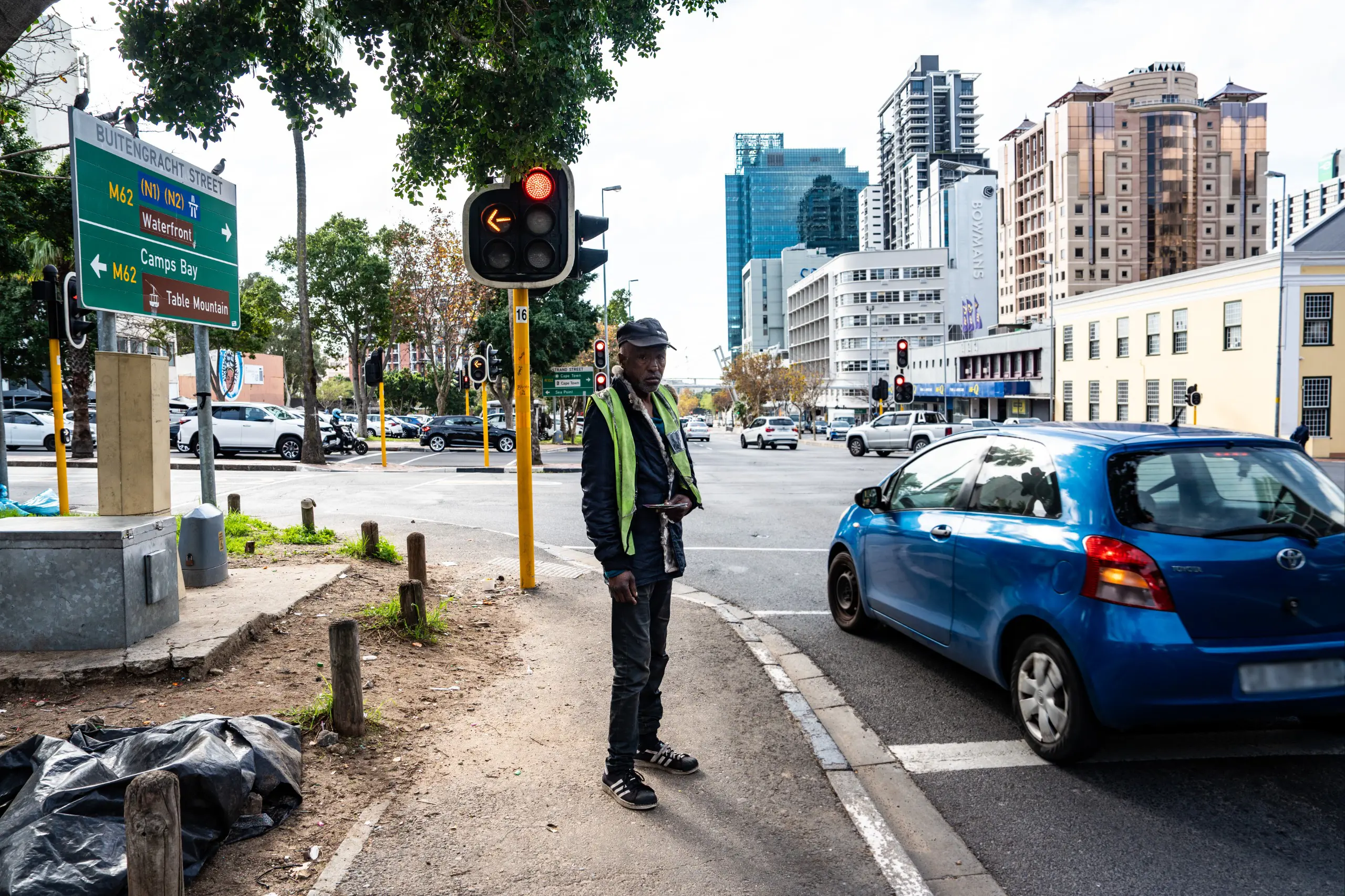
A man who is part of a group of 200 homeless people facing eviction stands on the corner of Beitengracht street in Cape Town’s city centre. Picture: Kayleen Morgan/ Eyewitness News
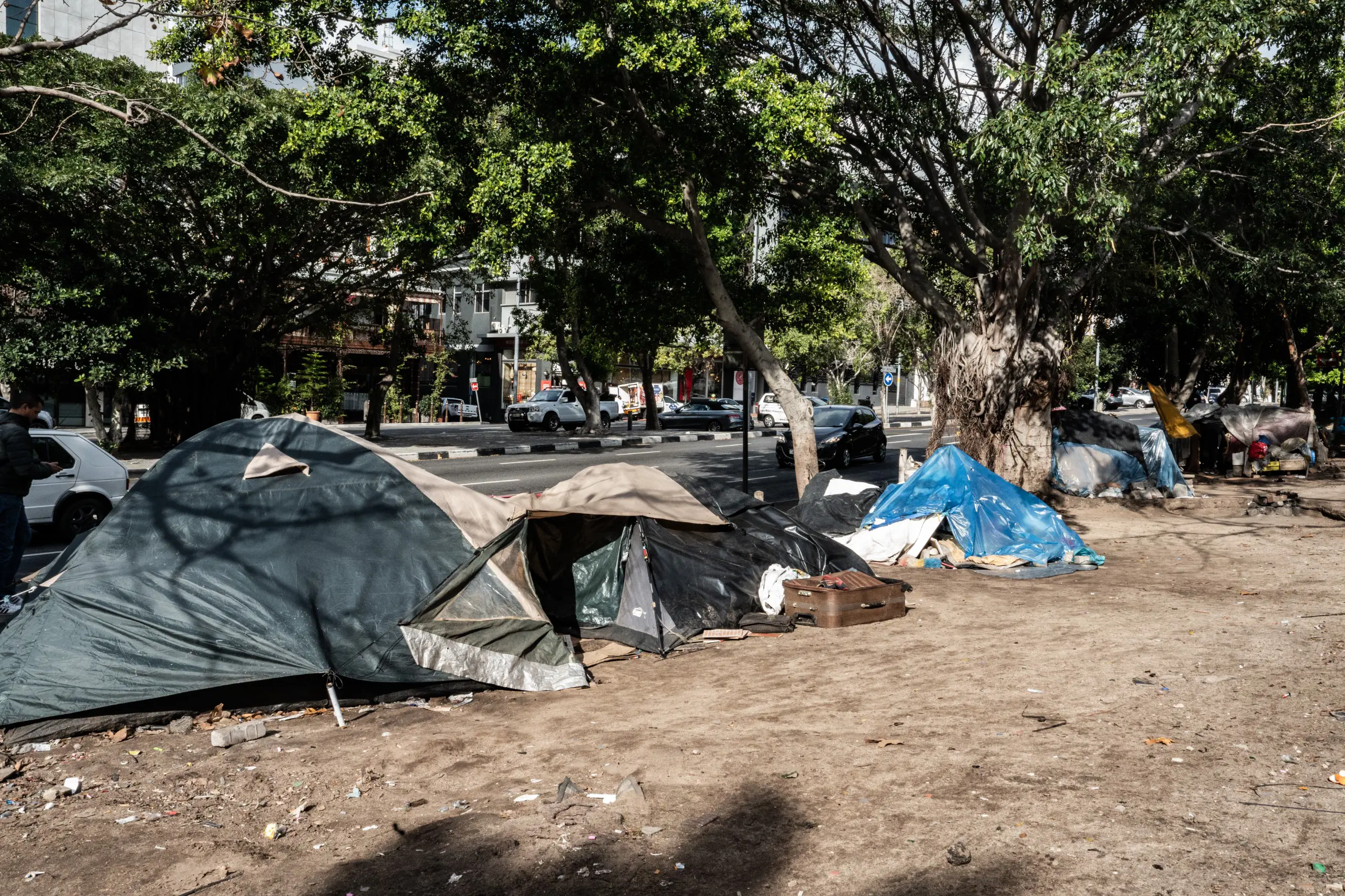
Picture: Kayleen Morgan/ Eyewitness News
Cape Town Mayor Geordin Hill-Lewis welcomed the judgment during a video statement on social media platform X.
Hill also reaffirmed his office's commitment to supporting the homeless.
"Seeking an eviction order was always our last resort, we extended our care interventions [temporary accommodation known as safe spaces] knowing that some would take them and some would not, we knew that when our interventions were not taken up, we would have to rely on on the courts for help so this court order is good news," he said.
But those living on Buitengracht Street, one of the city's main connecting roads boasting upmarket office blocks, restaurants and hotels, say they've been abused by law enforcement agencies for years and the interdict only seeks to tailor the image of the city.
"We are being treated like animals, we are not animals, we are human beings. What they're doing and the way they're doing it is just to prove to people in cars that they're doing their job," said Gary van Niekerk who's lived on the streets since he was ten years old.
"We are not going to the shelter, and they are not going to let [force] us to go," he added.
Instead, van Niekerk said he would like to see the matter appealed in court.
Others said if the city implements the interdict, they will find other places to hide.
"I'll just find another hiding place when they remove us here, because what they'll give us [shelters] is not even alright. Maybe if they'd let us cook our own food, instead [of] what they give us, [not] even a dog would not eat that," said Sipho Dube.
"We don't even get the basics. I will never go back to the shelter, I'd rather look for another place to stay, but I'm still going to be here on the street," said Amina Petersen, who lived in the city for two years.
Get the whole picture 💡
Take a look at the topic timeline for all related articles.
Trending News
More in Local

17 December 2025 19:14
EWNTV NEWS BULLETINS | DJ Warras killed in mistaken identity? Shebeshxt denied bail, CT murders surge

17 December 2025 15:44
Rand Water completes initial maintenance phase; second stage set for Friday

17 December 2025 15:10
eThekwini Municipality rejected plans for site of deadly temple collapse











